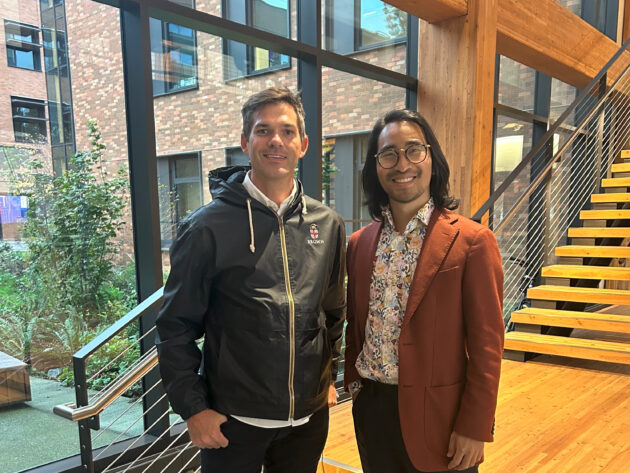
Science is often punctuated by exhilarating eureka moments—though these can be fleeting. Much of research involves navigating failed experiments, delving into a multitude of research articles, and twisting one’s thoughts to formulate new hypotheses.
A fresh startup in the Seattle area is striving to transform this experience. Founders Ryan Kosai and Nick Edwards have developed Potato AI, which they introduce as an AI-powered assistant for scientific research.
Potato began its journey last year and has recently announced securing a $1 million pre-seed funding round. Additionally, the startup recently became the inaugural partner in an AI initiative launched by Wiley, a prominent figure in academic and educational publishing.
The intriguing name “Potato” pays homage to the classic experiment in which a potato is utilized as a battery, powered by common items like pennies, copper wire, and galvanized nails.
“That’s essentially our mission,” Edwards stated. “We’re assisting individuals in planning and executing experiments.”
With a PhD in neuroscience and research stints at the National Institutes of Health and the University of California, San Diego, Edwards, the CEO, is well-acquainted with the challenges of lab research and the task of compiling research protocols from journal articles.
Yet, inaccuracies and inconsistent methodologies in articles fuel a reproducibility crisis, hindering scientists’ ability to replicate experiments—either their own or others’—for consistent results.
Potato leverages chat-based, generative AI tools built on large language models, further refined through retrieval-augmented generation (RAG). RAG enhances result accuracy by incorporating references from scientific literature, soon to be expanded using Wiley’s publications.
The Potato platform is currently operational in labs across biotech companies and prestigious universities such as the University of Washington, Stanford, Harvard, Massachusetts Institute of Technology, University of California, San Diego, University of California, Berkeley, The Scripps Research Institute, among others.
“Our ultimate aim is to empower researchers to rapidly distill scientific content and design reproducible, adaptive experiments, thereby accelerating the path to medical breakthroughs,” Kosai explained.
Operating as Potato’s chief technology officer, Kosai has previously served as founder and CTO for fintech startup Attunely, now defunct, and CTO for startup studio Pioneer Square Labs, with past experiences at ExtraHop, Marchex, and Athleon.
This AI tool also critiques journal articles and aids researchers in crafting papers for publication while helping in the review process of journal submissions. It identifies flaws in protocols, such as inadequate controls, and fosters brainstorming for new research inquiries.
Potato aspires to offer subtle yet potentially significant adjustments to protocols. Edwards recalled an important realization during his neuroscience research—substituting one salt for another in a common solution extended the lifespan of studied tissue significantly. Such valuable insights can be overlooked with traditional protocol-sharing methods that rely on informal exchanges.
While there are other AI research tools available, many emphasize digesting and summarizing published research. The field includes contributions from nonprofit organizations and academic entities.
A challenge Kosai and Edwards face is minimizing errors or inaccuracies in the AI outcomes, achieved by personal fact-checking and directing users to primary sources, enabling further querying of the tool.
While the startup currently focuses on biological and medical research, there are plans to expand its AI assistant capabilities to materials science and chemistry research.
Scientists can access the platform for free on a limited basis, with options to pay for advanced features, including additional data uploads and enhanced collaborations.
The pre-seed funding participation comprises entities such as Axial, Pioneer Square Labs, AI2 Incubator, and Bow Capital, alongside angel investors like Cloudera founder Jeff Hammerbacher and ExtraHop founder Jesse Rothstein.



